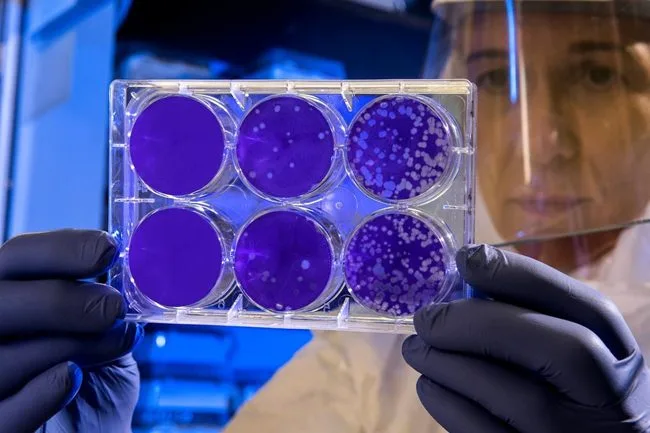As we delve deeper into the mysteries of aging and longevity, one compound that keeps capturing scientific and consumer interest is Nicotinamide Mononucleotide (NMN). NMN supplements could prove to have profound benefits on aging and overall well-being. With new findings emerging regularly, it’s crucial for anyone interested in health optimization to stay informed. Below, we explore what the latest research tells us about the potential of NMN supplements.
Understanding NMN Supplements and Their Growing Popularity

Nicotinamide Mononucleotide, or NMN, is a precursor to Nicotinamide Adenine Dinucleotide (NAD+), a vital molecule found in all living cells. NAD+ plays an essential role in energy production, DNA repair, and cellular communication. However, NAD+ levels decline with age, a fact that has prompted interest in NMN as a way to boost dwindling supplies of this crucial molecule.
The appeal of NMN supplements has grown exponentially as they have been touted for their potential to promote health and extend lifespan. This rise in popularity is supported by a growing body of preclinical studies showcasing NMN’s positive effects on various age-related physiological declines. The science community is abuzz, The consumer market is observing a surge in demand for these promising supplements. While Liposomal NMN+ has gained attention in the market due to its purported health benefits and unique formulation.
Within this context, the market has seen an array of NMN products with varying purity and origins. Consumers seeking the best NMN supplements are advised to look for products that provide clear sourcing, manufacturing, and testing information to ensure they are receiving quality and effective supplements.
The Science Behind NMN

The connection between NMN and anti-aging hinges on the molecule’s relationship with NAD+. NAD+ is integral to the function of sirtuins, proteins involved in cellular health and longevity. As NAD+ is a sirtuin activator, replenishing its levels through NMN supplementation could potentially slow the aging process and mitigate age-related diseases.
Initial studies using animal models have shown remarkable outcomes, such as improvements in metabolic disorders, cardiovascular health, and neurodegeneration. These promising results have sparked interest in whether NMN can yield similar benefits in humans. Extensive research is now directed towards understanding NMN’s mechanistic pathways and its translation to human health benefits.
While NMN’s potential appears tremendous, determining the optimal dosage and frequency remains a critical area of research. Scientists aim to establish recommended doses that can increase NAD+ effectively without causing side effects. This balance is crucial for any supplement aspiring to become a mainstream tool in anti-aging protocols.
Furthermore, NMN’s role in other molecular processes is under intense scrutiny. There are indications that NMN supplementation could influence pathways related to mitochondrial function, inflammation, and even circadian rhythms. Elucidating these connections could unlock new preventive strategies against age-related decline.
Evaluating the Efficacy of NMN Supplements
Recent studies on NMN supplements have been aiming to bridge the gap between animal research and human application. Clinical trials are the gold standard for evaluating the efficacy of any potential treatment, and NMN is no exception. Researchers are rigorously testing NMN’s effects in controlled settings, focusing on biomarkers associated with aging and longevity.
One area of investigation involves metabolic benefits, including NMN’s impact on blood glucose levels, lipid profiles, and insulin sensitivity. Promising data from these studies could solidify NMN’s place within integrative approaches to metabolic health and diseases such as diabetes.
Another critical aspect of current research involves the neuroprotective properties of NMN. Age-related cognitive decline and neurodegenerative diseases represent a significant burden, and early findings suggest that NMN supplementation may support cognitive health and function by promoting neuronal survival and repair.
Potential Health Benefits of NMN
The potential health benefits of NMN span far and wide, beginning with increased energy levels. NAD+ is pivotal in converting nutrients into energy, and thus, NMN supplementation could enhance physical stamina and reduce feelings of fatigue. This can be especially appealing to those experiencing the natural energy downturn associated with aging.
In the realm of longevity, NMN’s role in DNA repair is of particular interest. DNA damage accumulates over time, leading to the physical manifestations of aging and diseases. Enhancing NAD+ through NMN supplementation can support the body’s inherent DNA repair processes, possibly contributing to an extension of a healthy lifespan.
Additionally, cardiovascular health is a critical concern with aging, and NMN might provide support in this area as well. Evidence indicates that NMN may improve vascular function and blood flow. These effects combined could lead to better overall cardiovascular health and help to stave off heart disease, a leading cause of aging-related mortality.
Altogether, NMN supplements hold promising potential for enhancing health and combating the effects of aging. Overall, as research progresses, those interested in NMN should prioritize quality products, safety, and an integrative approach towards wellness to fully harness the benefits these supplements might offer.
References
- “Nicotinamide mononucleotide, a key NAD+ intermediate, treats the pathophysiology of diet- and age-induced diabetes in mice” by Yoshino et al., Cell Metabolism, 2011, doi: https://doi.org/10.1016/j.cmet.2011.08.014
- “Oral administration of nicotinamide mononucleotide activates SIRT1 and ameliorates type 2 diabetes in mice” by Yoshino et al., Endocrinology, 2018, doi: https://doi.org/10.1210/en.2018-00763
- “The NAD+ precursor nicotinamide riboside enhances oxidative metabolism and protects against high-fat diet-induced obesity” by Cantó et al., Cell Metabolism, 2012, doi: https://doi.org/10.1016/j.cmet.2012.04.022
- “Chronic nicotinamide riboside supplementation is well-tolerated and elevates NAD+ in healthy middle-aged and older adults” by Martens et al., Nature Communications, 2018, doi: https://doi.org/10.1038/s41467-018-03421-7
- “Long-term administration of nicotinamide mononucleotide mitigates age-associated physiological decline in mice” by Mills et al., Cell Metabolism, 2016, doi: https://doi.org/10.1016/j.cmet.2016.09.013
